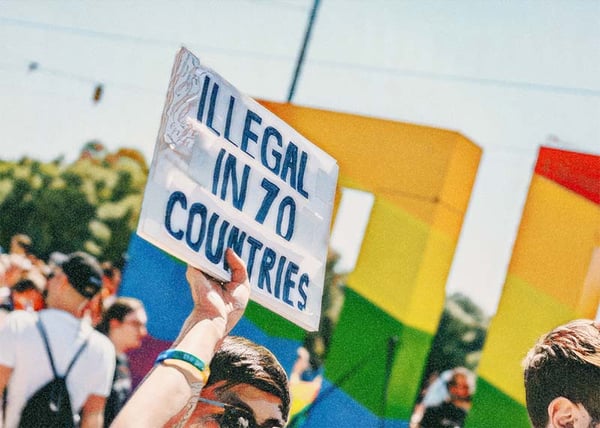Russia has now banned satan — to ”protect the world” from the West
Russia's satanism ban is more than just PR – it's a scarecrow tactic used by authoritarians around the world.

After cracking down on critics, media, and so-called foreign influence, Russian authorities are now going after the ultimate evil: satan himself. On 23 July, the country’s supreme court declared the so-called ”International Satanist Movement” an extremist organisation.
Say what? Authorities didn’t explain what ”satanic activity” even is, providing no clear criteria, symbols, practices, or evidence of an actual organisation. While there are some organised satanic_ _beliefs, it’s unclear who exactly would be punished under the new ban.
Instead, human rights groups warn that the law's vague wording gives the state sweeping power to label virtually anything as ”satanic”. A similar precedent was set with multiple other fictional groups, including the so-called ”international LGBT movement”, which is now considered an extremist 'organisation'.
Such bans are often framed as efforts to protect children, preserve the family unit, and defend ”traditional values” – but in reality, these bans normalise discrimination. If the state-line is that anything resembling LGBTQ+ identities is extremist and satanic, both legal and everyday discrimination is justified. Similar rhetoric has likewise been used to justify anti-LGBTQ+ legislation in Georgia, Hungary, and Türkiye.
It’s no coincidence this is happening during wartime. In a 2024 document, a public organ of the Russian Orthodox Church declared that Russia and its people ”carry out the mission of holding back, protecting the world… from the West that has fallen into Satanism”. In this mythology, Ukraine has become the frontline combat unit of the so-called satanic West.
To sustain that narrative, the Kremlin needs a revolving cast of enemies: external and internal, real or imagined. The legal uncertainty surrounding the Satanism ban only makes it easier to accuse and persecute anyone the authorities wish to silence.
